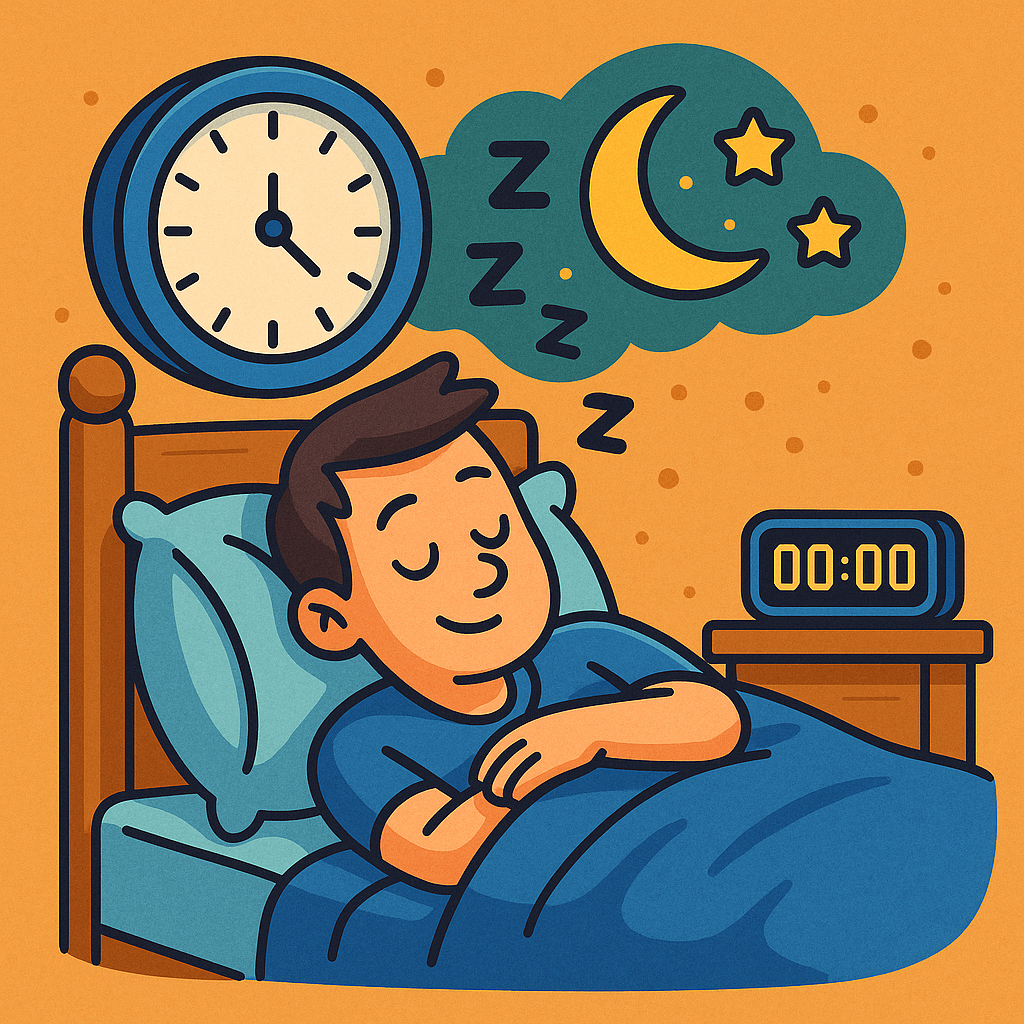In a world obsessed with productivity, many people overlook the foundation of health and performance — sleep. But thanks to the rise of biohacking, a growing number of individuals are now optimizing their sleep using data, science, and smart habits.
This article explores what science really says about sleep phases, quality rest, and whether sleep biohacking actually works.
What Is Sleep Biohacking?
Sleep biohacking refers to the use of science-based techniques, tools, and lifestyle changes to improve sleep quality, fall asleep faster, and enhance physical and mental recovery during rest.
It may include:
- Adjusting light exposure
- Tracking sleep cycles with wearables
- Modifying bedroom temperature and noise
- Practicing sleep rituals or breathing techniques
Unlike generic “sleep tips,” biohacking is about personalized optimization — testing what works for your unique biology.
The Science of Sleep: Understanding the Phases
Sleep isn’t a single state — it’s a dynamic process that cycles through four stages multiple times each night:
1. Stage 1 – Light Sleep
This is the transition phase from wakefulness to sleep. Brain activity begins to slow, and you may twitch or feel like you’re falling.
2. Stage 2 – Deeper Light Sleep
Your body temperature drops, breathing becomes steady, and brain waves slow with occasional bursts of activity. This phase accounts for about 50% of total sleep.
3. Stage 3 – Deep Sleep (Slow-Wave Sleep)
Also called N3, this is the most physically restorative phase. The body repairs tissue, strengthens the immune system, and releases growth hormone.
4. REM Sleep – Dream Stage
REM (Rapid Eye Movement) is when most dreaming occurs. Brain activity increases, helping consolidate memories, process emotions, and support learning.
Each sleep cycle lasts about 90 minutes, and adults typically go through 4–6 cycles per night.
Why Sleep Quality Matters More Than Duration
You’ve probably heard that 7–9 hours of sleep is ideal — and while that’s generally true, quality is just as important as quantity.
Poor-quality sleep can:
- Disrupt hormonal balance
- Increase stress and anxiety
- Impair focus, memory, and decision-making
- Lower immune function
- Accelerate aging and inflammation
Even if you’re in bed for 8 hours, frequent wake-ups, poor deep sleep, or short REM phases can leave you tired and foggy.
Tools and Techniques for Sleep Biohacking
Wearable Devices
Oura Ring, WHOOP, Apple Watch, and other trackers analyze your sleep cycles, heart rate, and body temperature — offering insights to adjust behavior.
Light Management
- Reduce blue light from screens 1–2 hours before bed
- Use red-spectrum lights or blue-blocking glasses at night
- Get bright sunlight in the morning to reset your circadian rhythm
Mind & Body Practices
- Breathing exercises (like box breathing)
- Mindfulness or body scans
- Cold showers in the morning, warm baths before bed
Environment Optimization
- Keep bedroom cool (16–19°C / 60–67°F)
- Use blackout curtains and white noise
- Ensure mattress and pillow match your sleep posture
What the Science Actually Supports
Biohacking sleep can sound extreme — but many techniques are rooted in neuroscience and chronobiology. Research supports:
- The value of consistent sleep schedules
- The impact of light exposure on melatonin
- The benefits of slow-wave sleep for recovery
- The role of REM in cognitive performance
However, not all products and hacks are backed by strong evidence. Avoid relying on gadgets or pills alone — foundational sleep hygiene still matters most.
Key Terms Explained
- Circadian Rhythm – Your body’s 24-hour internal clock, regulated by light and darkness
- Melatonin – A hormone released at night that helps trigger sleepiness
- REM Sleep – A brain-active sleep phase responsible for dreaming and mental restoration
- Sleep Debt – The accumulated loss of rest due to not sleeping enough
- Deep Sleep – The stage responsible for physical repair and recovery
Final Thoughts
Sleep is not just rest — it’s repair, reset, and rebalance. Biohacking sleep isn’t about doing more — it’s about doing less, smarter. With science-backed strategies and mindful routines, you can turn your nights into your most powerful tool for health, clarity, and performance.
Start with one small change tonight — and listen to what your body tells you tomorrow.


